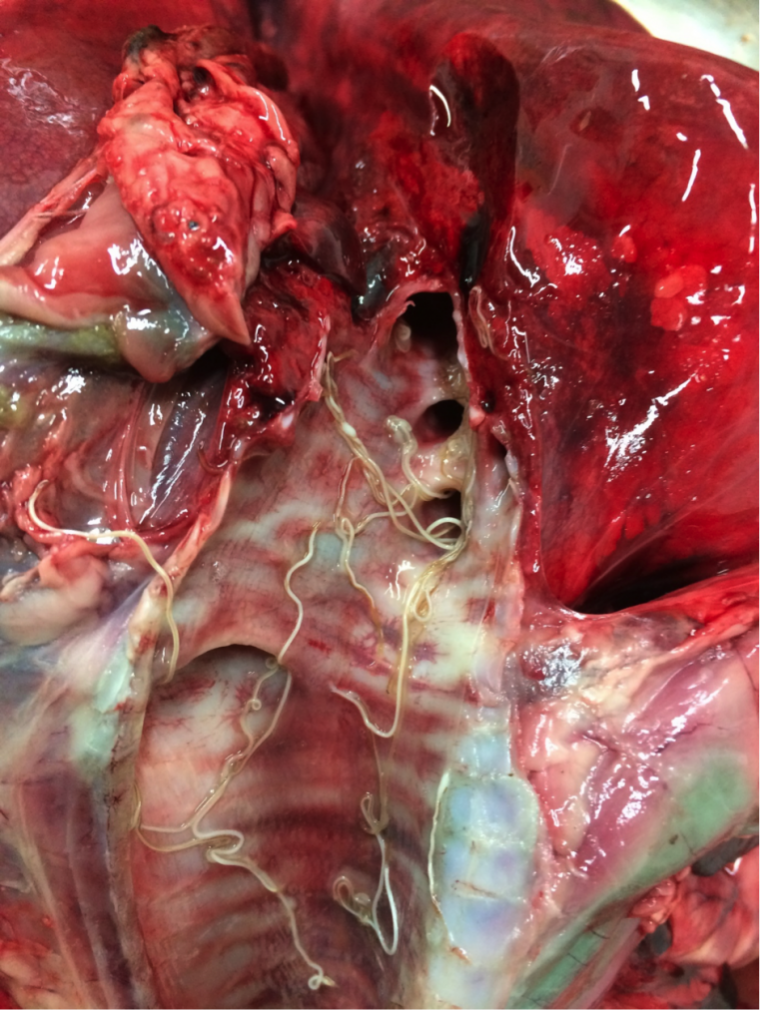Vaccination can help create herd immunity to lungworm, but the oral treatment has to be given twice, four weeks apart, with the latter dose given two weeks before turnout. This means farmers need to buy their vaccine now.
“The vaccine creates short-term immunity until longer-lasting cover can develop naturally by the cattle picking up lungworm larvae while grazing,” explains Catherine McCarthy, who has recently completed a PhD on the epidemiology of lungworm at the University of Liverpool.
“First season grazing calves, cattle not previously vaccinated, bought-in cattle with unknown vaccination status, and cattle that have not been exposed to normal lungworm levels in their last grazing season, should all be considered for vaccination,” says Dr McCarthy.
“It is also recommended that newly vaccinated cattle are placed onto lungworm contaminated pasture at turnout if possible. This will help boost immunity generated by the vaccine.”
Infection is caused by the lungworm parasite, which completes its lifecycle in the lungs of its host. The overall cost of an incident per adult dairy cow is conservatively estimated at £140, with reductions in milk yield of up to 4 litres a day.
Once thought of as a calf disease, it is now becoming more common in adult cattle and can cause sudden death. Coughing and rapid breathing are often the first clinical signs, and cases are normally seen from August to October.
“While preventative worm treatments have their place in practice, farmers should be thinking ahead and vaccinate for long-term control,” Dr McCarthy adds.
Risk assessment for the likelihood of lungworm should be carried out, ideally with the vet. Risks include buying in stock with unknown disease history, being near a farm where there is a lungworm outbreak, having lungworm on the farm in previous years and location – lungworm is more likely in the wetter west.
“It is best to speak to the vet or SQP for advice on farm-specific anthelmintic control plans. But it is good to remember that every time a farmer avoids using a wormer, it creates a good opportunity for cattle to create their own immunity.
“But it is worth remembering that vaccinating against lungworm gives no protection against gut worms and the risk assessment for these types of worms must be done separately.”
More information on lungworm control can be found at the Control of Worms Sustainably (COWS) website at cattleparasites.org.uk




